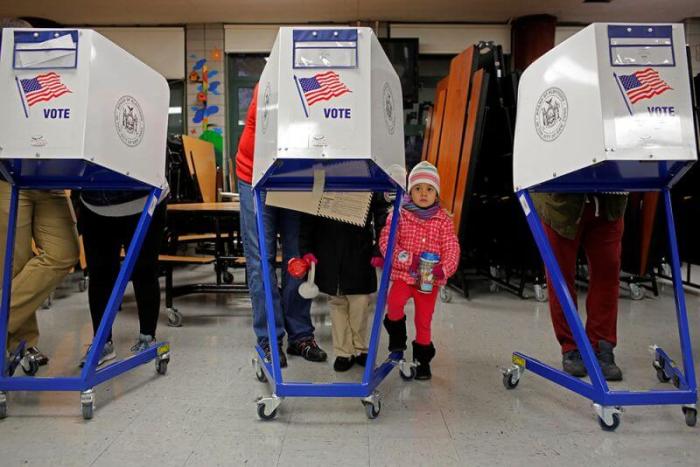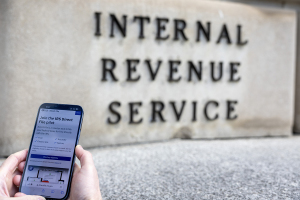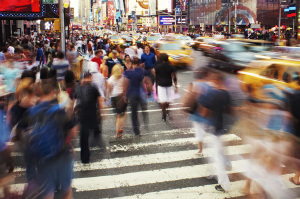What kind of power do Christians want?

So much of America’s news is devoted to who holds or will gain political power. Ideas and arguments from political candidates cause tremors in the ground beneath our already-shaky feet. Case in point: Beto O’Rourke’s recent declaration that he would negate tax exemption for nonprofits such as churches if they don’t hold views consistent with his party’s view on same-sex marriage.
Now with midterm elections looming, where do Christians look for their power?
In its earliest days, Christianity was a small sect on the fringe of society. The charge from Jesus to His followers was to go out in POWER — not political, not societal, not religious power or human might, but in the power of the Holy Spirit and the Gospel.
The Church is growing around the world, but from where most Americans sit, you’re likely not seeing it. It was the apparent and drastic contradiction of the Church flourishing like never before in history in the Majority World — Asia, Africa, South America — and flailing in the West, that made me take a hard look at these power differentials.
God is visibly active in the Majority World where Christians possess little to no political, societal or religious power. Not surprisingly, Majority World countries are also hot spots for Christian persecution.
Stories of persecution abound. From behind our tidy desks and MacBook Pros here in America, we hear reports of pastors having guns held to their heads in India; Christian children in Iran being denied school certificates that would allow them to advance in their studies; churches being burned or disbanded, and Christians being imprisoned for their faith. And yet, in Asia, in the Middle East, and elsewhere, the church is flourishing.
I wonder what instills fear in American Christians more: the loss of power in the political polls? the marketplace? losing freedom of expression? Or the fact that the most respected religious-research polls reveal a drastic decline in the number of U.S. congregations and congregational size?
Do we care more about the power we’ve known in the past several decades — the kind we’ve become accustomed to — than the power originally entrusted and gifted to the Church by Christ Himself?
The power we’ve grown to truly appreciate and depend on here in America is indistinguishably enmeshed with the American dream. We know the blood of the martyrs is the seed of the Church, but let’s be honest: I prefer the kind of power that keeps me safe and comfy. Risking our secure, tidy existence is apparently as deep an affront to Christianity (if not deeper) as the risk of powerlessness to actually transform lives.
Does it make you wonder why the Church in America is in such decline, in spite of all the freedoms, societal influence and political sway that we have? Christianity in America has climbed into bed with power. And we like it, regardless of the cost.
Our brothers and sisters in the Majority World, much like those in the flourishing early Church, have no political power. They aren’t rich; they aren’t controlling the academy or occupying critical government seats. Yet the Church international is on an unprecedented trajectory of growth.
In the Majority World
While serving in Albania, a small group of Christians doing tremendous work across the airwaves gathered for prayer one morning. One woman told me, “We don’t worry about persecution. I mean, we know we could die.”
These Albanians are the first of their generation to follow Christ. They don’t have a recent history of Christianity. In fact, under Communist regime from 1944–1992, Albania was the only country in the world to self-identify as an atheist nation. Though that is no longer the case, Albanian Christians today hold zero power of the American Christianity sort.
I experienced threats myself while ministering in one East Asian country where the Holy Spirit is being poured out. Hundreds of churches are established yearly, and record numbers of people are coming to faith in Christ even as their country’s leader cracks down on Christianity.
Our women’s conference was cut short due to riots just outside the facility where we had gathered to train and empower these women. Another day, an armed truck drove through the dusty streets, on the lookout for any North American with white skin who might possibly be there for religious purposes. When my host, a local pastor, saw the truck, he pulled me out of sight and said, “Back in here, Nancy. We don’t need trouble.”
We are living in a time when God is certainly moving. Christ is certainly building His Church. But here in America, I wonder what concerns us most: that we’re not actually taking a seat in this movement, or that we’re losing our societal position? The truth is, Christians are increasingly becoming irrelevant in this country. By substituting the power that was rightfully ours to wield, we’ve effectively lost all power.
In its domination, the American Church stopped behaving like the Church. We quit taking the love of God in word and deed to all people. We became political instead. We got powerful and power-hungry, but it was not God’s power or spiritual hunger.
Thankfully, it’s not too late. What if we take a page from our first-century predecessors? What if we take notes from our Majority World family?
Under constant threat of persecution, with no other power to depend on, Christianity is spreading throughout the world. Back here in America, it’s being pushed to the margins. We’ve gone from being powerful and dominant to losing our dominance and cultural power. And maybe that’s not a bad thing.
Nancy Hicks has been in communications her entire life. As an on-air spokesperson for QVC, she inspired millions of viewers. After earning her master’s in theology from Palmer Seminary of Eastern University, she launched an international speaking ministry, NancyHicksLive. Nancy has a passion for Christ and is a herald of His call to life, having served in various leadership roles within the church since she was 16 years old. She has also taught numerous Bible classes in addition to training ministry leaders. Her life's mission is to raise up women around the globe by igniting and equipping them. "Meant to Live," Nancy’s first book, was released on Sept. 17, 2019. For more information on Nancy, visit www.NancyHicksLive.com. ?




























